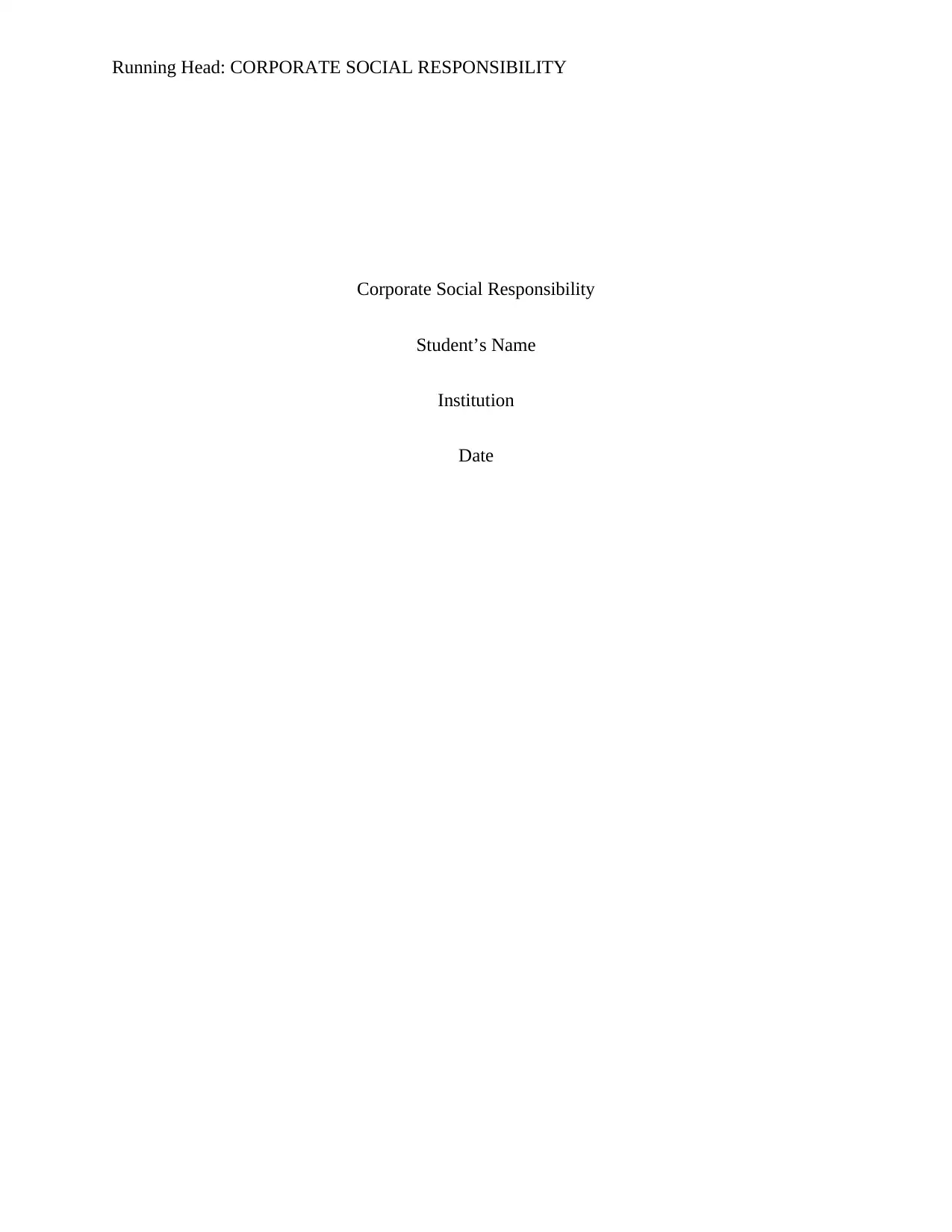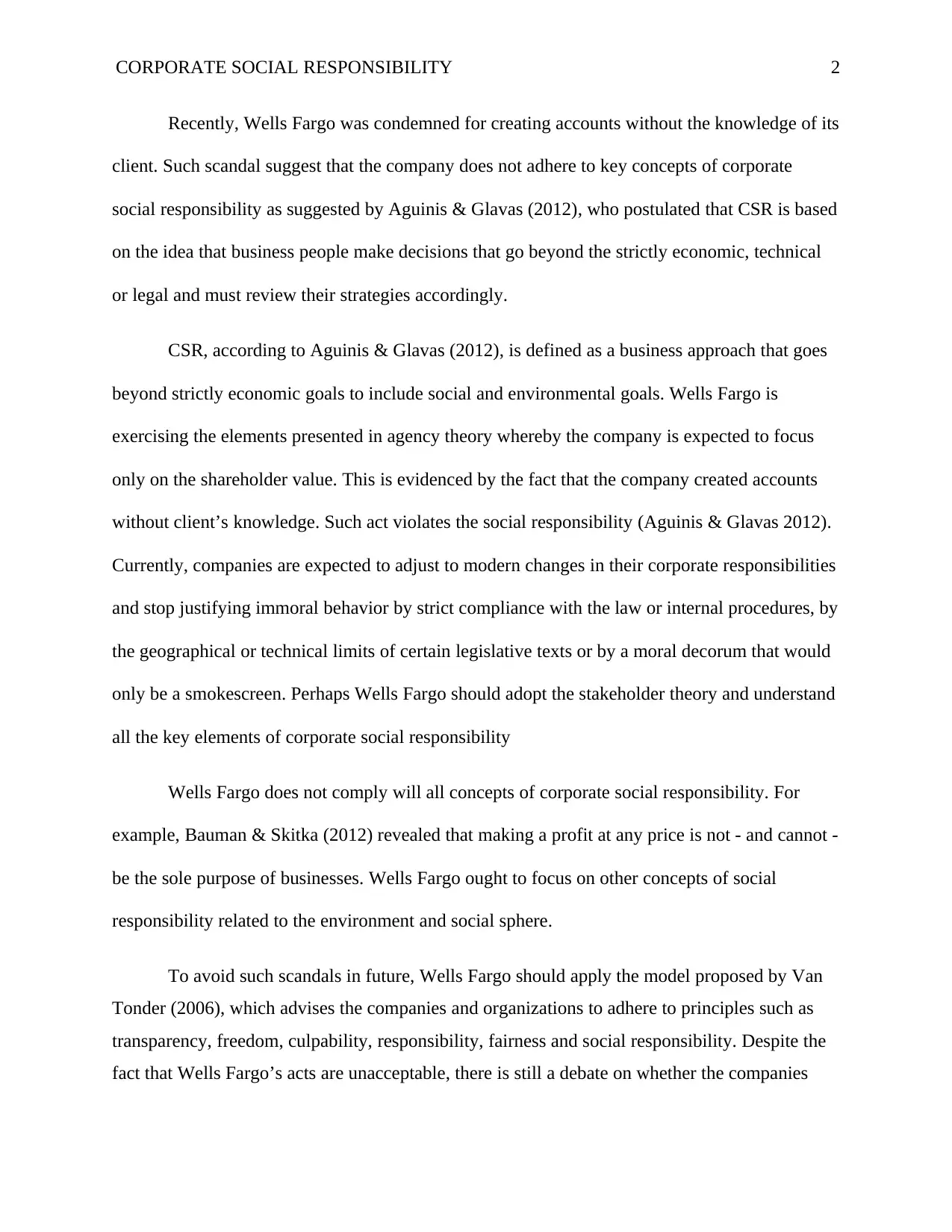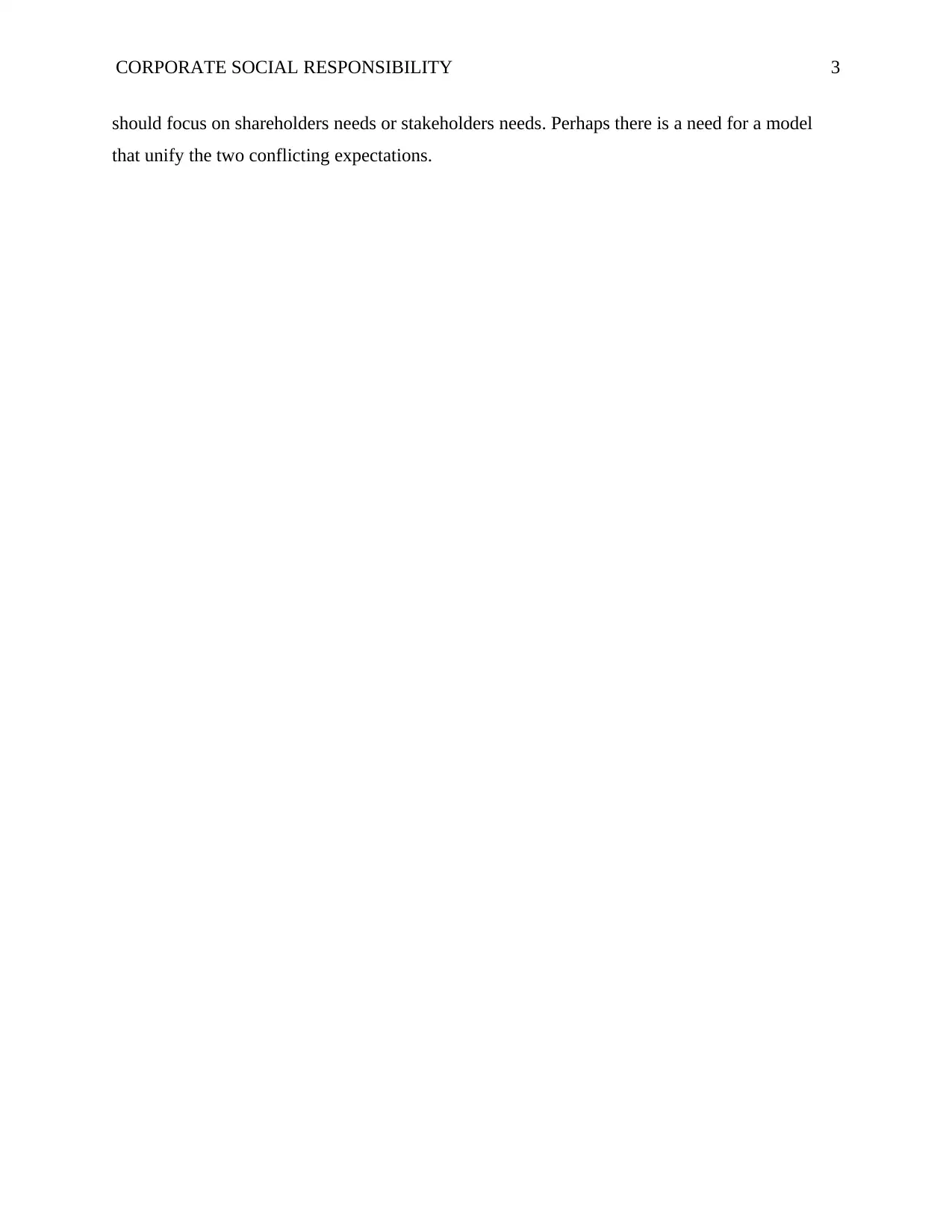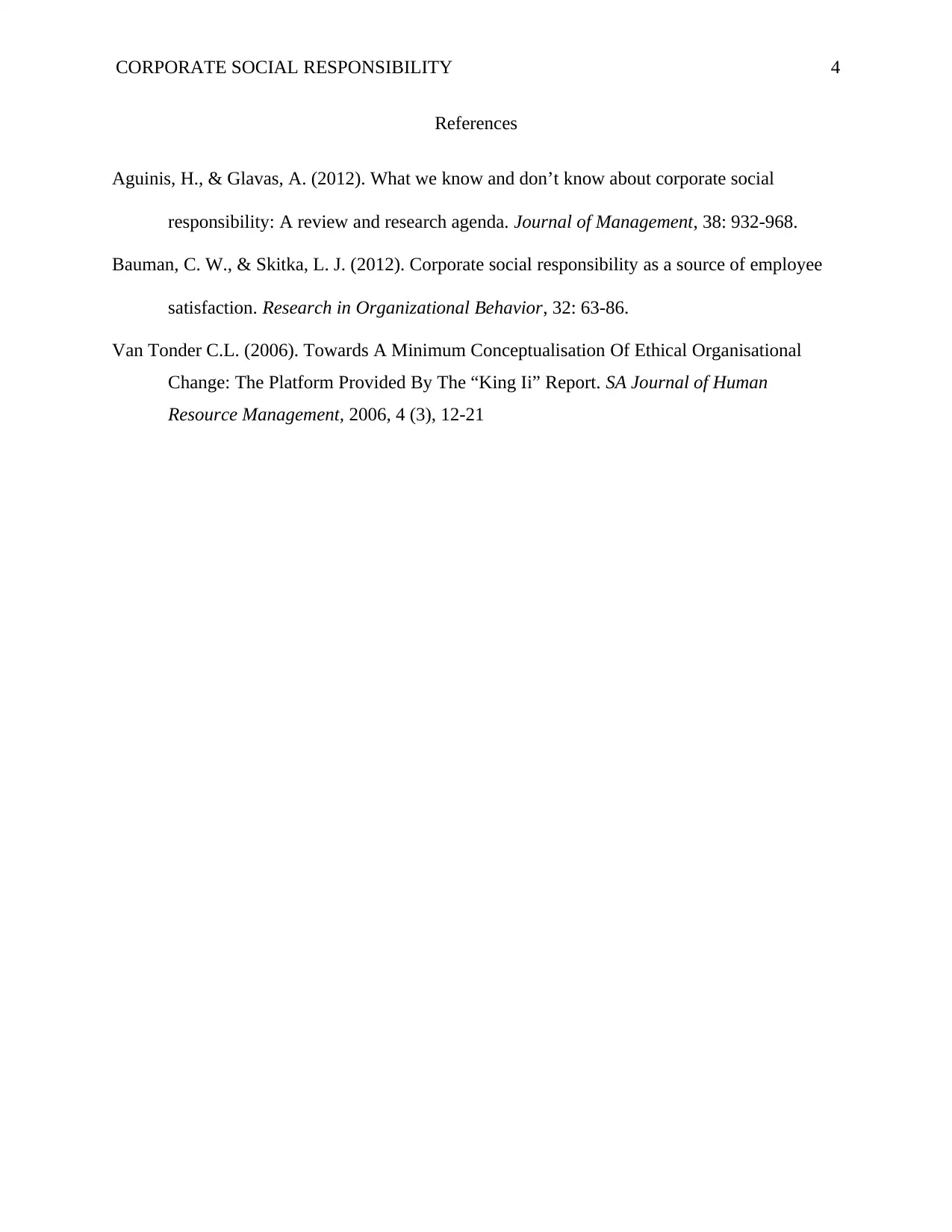The Role of Corporate Social Responsibility: A Study of Wells Fargo
VerifiedAdded on 2023/06/03
|4
|523
|293
Essay
AI Summary
This essay analyzes Wells Fargo's corporate social responsibility (CSR) practices in light of recent scandals involving the creation of unauthorized accounts. It contrasts the company's actions with the principles of CSR, which emphasize ethical decision-making that goes beyond mere economic, technical, or legal compliance. The essay highlights the conflict between agency theory, which prioritizes shareholder value, and stakeholder theory, which considers the interests of all stakeholders, including customers and the broader community. Drawing on research by Aguinis & Glavas (2012) and Bauman & Skitka (2012), the essay argues that Wells Fargo's behavior reflects a failure to embrace CSR principles, particularly the idea that profit should not be the sole purpose of business. To prevent future ethical lapses, the essay suggests that Wells Fargo should adopt a model based on transparency, freedom, culpability, responsibility, fairness, and social responsibility, as proposed by Van Tonder (2006). The essay concludes by acknowledging the ongoing debate about the relative importance of shareholder versus stakeholder needs and calls for a model that reconciles these conflicting expectations.
1 out of 4







![[object Object]](/_next/static/media/star-bottom.7253800d.svg)